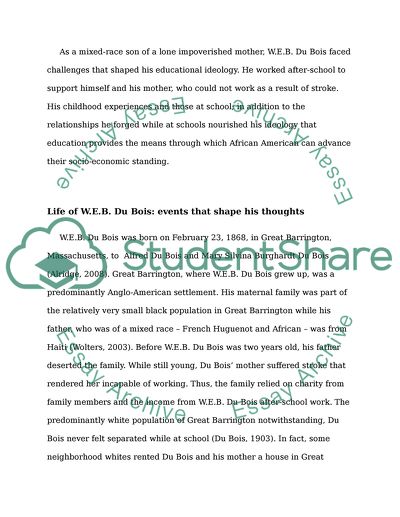Cite this document
(“W.E.B. DuBois life and role in the history of education Essay”, n.d.)
Retrieved de https://studentshare.org/education/1417953-web-dubois-life-and-role-in-the-history-of
Retrieved de https://studentshare.org/education/1417953-web-dubois-life-and-role-in-the-history-of
(W.E.B. DuBois Life and Role in the History of Education Essay)
https://studentshare.org/education/1417953-web-dubois-life-and-role-in-the-history-of.
https://studentshare.org/education/1417953-web-dubois-life-and-role-in-the-history-of.
“W.E.B. DuBois Life and Role in the History of Education Essay”, n.d. https://studentshare.org/education/1417953-web-dubois-life-and-role-in-the-history-of.


